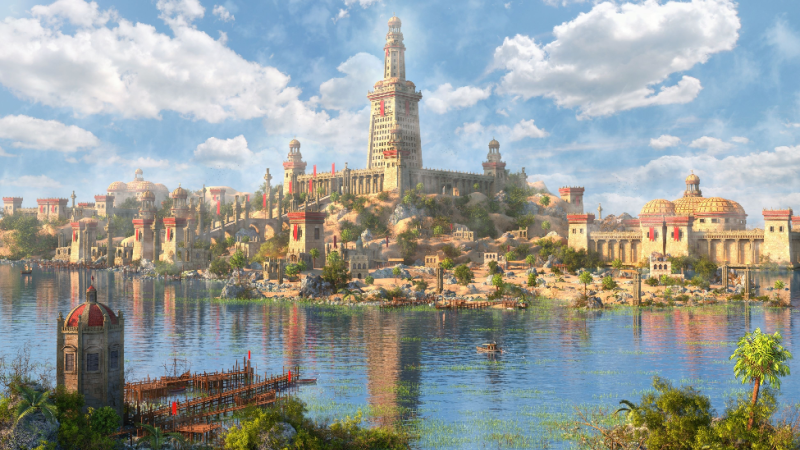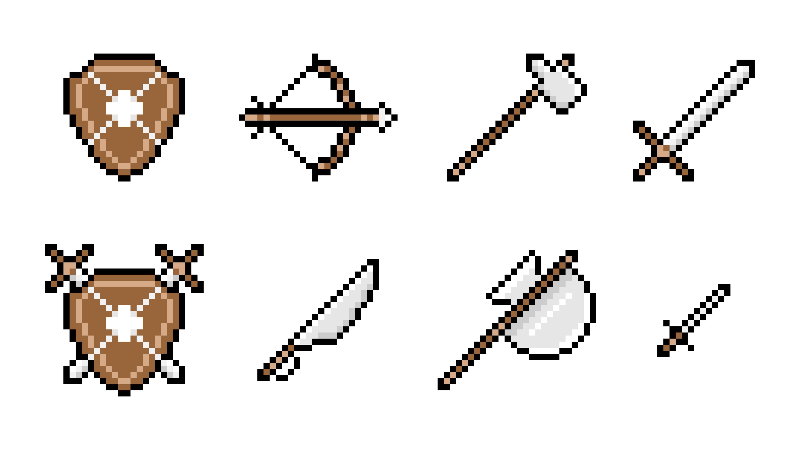Civ 7 For Dummies: Best Beginner Guide

By Karl Reyes | February 18th, 2025 | Categories: Others
Civilization 7 may seem a bit daunting to get into, especially for new 4X gamers, but the game is now more accessible than ever. This guide will show you the basic steps into setting up a good civilization and how you can win a match.
Table of Contents
Leaders and Civilizations
Unlike the previous Civ games, you now select a Leader and a starting civilization independent of each other. Leaders have special passives and modifiers that affect certain resource outputs for your civilization. When selecting a Leader and a civilization, make sure that the Leader’s abilities match with the civilization’s starting bonuses so you can have a good start to your economy, military or culture.
Resource Yields
There are 7 resource yields in the game that your civilization can output:
- Science
- Culture
- Gold
- Influence
- Happiness
- Production
- Food
Science is a yield that is not spent, but rather an indicator of how fast your research will progress. The more Science yield you have, the faster you can develop your sciences in a shorter number of turns.
Culture works much like Science in that the amount of Culture you output determines the speed of your Civics tree research. Culture yields are more diverse as not only do certain structures contribute to this, but certain policies will also increase it.
Gold is the most straightforward resource as you can use this to buy structures, fund research and expedite unit training to make your civilization grow faster.
Influence is a resource used to befriend other nations or purchase benefits from them. Research collaborations, vassalization and other non-violent options can be made by spending enough Influence, but it’s also the most difficult yield to increase.
Happiness determines how smoothly your nation will run, as the happier your citizens are, the better your yields and the more celebrations you obtain. However, if your people are unhappy, this will apply debuffs to your nation that will significantly reduce all outputs.
Food and Production do not span the entire nation but are specific to your towns and cities. Production as a resource dictates the speed at which buildings within that settlement will be built. This can also be converted into Gold. Meanwhile, Food affects the growth of that settlement’s population, and the more food it outputs, the more that settlement will expand.
Ages and Changes
In Civilizations, all factions go through three Ages: Antiquity, Exploration, and Modern. Every time a new age arrives, your civilization will drastically change depending on which you started with. The Antiquity Age is the default starting Age and is a crucial moment in the game where you must begin production and get your settlements built.
Before a new Age starts, a Crisis will occur that significantly affects your civilization. Plagues, uprisings, and invasions are just some of the crises in the game and will require you to adapt your planning around them. These are unavoidable, but certain Crises may come with an unexpected buff to make your game more interesting.
Adjacency Bonuses
Certain buildings in the game benefit from being right next to another or a unique tile that provides an adjacency bonus. In urban tiles, you can build two structures inside it to boost resource yields if you manage to match their requirements. This mechanic allows you to make the most of the limited map tiles you have, especially when near an Independent Power or a rival player.
Using Influence for Diplomacy
Influence is a difficult resource to obtain, but it is also the most valuable as it can be used for treatises with other Independent Powers or inflicting Sanctions on enemies to hinder their progression. If used right, you can even take direct control of an Independent Power with Influence and annex them into your own civilization.
Military Units and Warfare
Of course, warfare is inevitable between nations and one of Civ 7’s biggest changes are the Army Commanders. While you can train individual military units, your Army Commander is the backbone of your military as basic units can be integrated into the Commander’s tile.
A Commander can specialize into five skill trees: Bastion, Assault, Logistics, Maneuver, and Leadership. These trees provide army-wide bonuses like extra movement speed, bonus attack damage or ignoring rough terrain that gives your units an advantage.
Antiquity Age Tips
- You start the game with a Founder unit, which automatically creates a city once you settle them on a tile. The best spots to place your city are anywhere near a source of fresh water like a river. These are marked by blue tiles.
- Start exploring your surroundings immediately. Train a couple of scout units and look for Discoveries that will provide either a resource boost or a special passive when you settle on that tile or expand your city there.
- Always specialize your towns and cities towards a certain resource. By settling on certain tiles that provide the highest bonuses to the resources you need, you won’t be lacking in economy for the early game.
- Play to your civilization’s strength. Learn the different win conditions and which ones are the easiest for your civilization to reach.
Exploration Age Tips
- Before reaching this age, try to put a settlement that is close to the sea or the ocean. This will get you an early start when the Exploration Age arrives, as you now have ports and can get started on assembling treasure ships.
- The Theology civics tree will be unlocked in the Exploration Age and will provide some extra bonuses to your yields if you specialize some points into them. Missionary units will also be available to train.
Modern Age Tips
- Warfare will begin to escalate in the Modern Age as new weapon technologies will be unlocked. If you plan to obtain a Military Victory, this Age is the right time to achieve this win condition.
- This Age unlocks Factories, a new building slot in your towns and cities that provides a percentile buff to the current type of resource you are outputting. Factory resources like Kaolin and Tea boost your Science and Culture resources, respectively, so make sure that your settlements are already specialized by this point.














